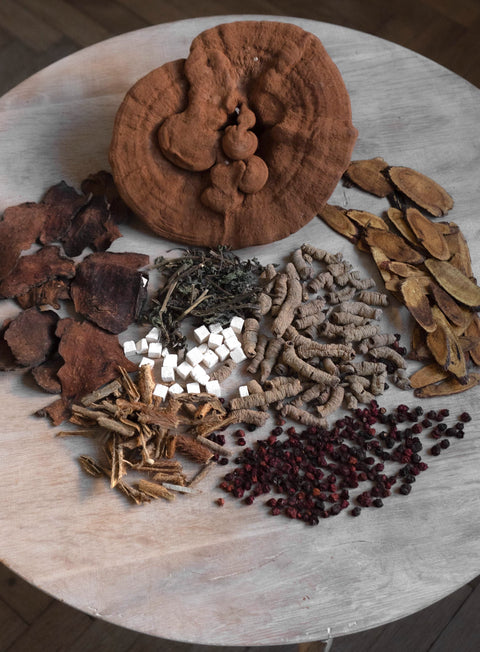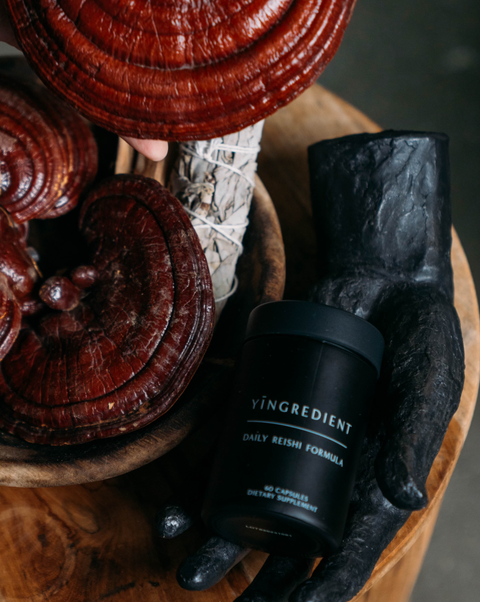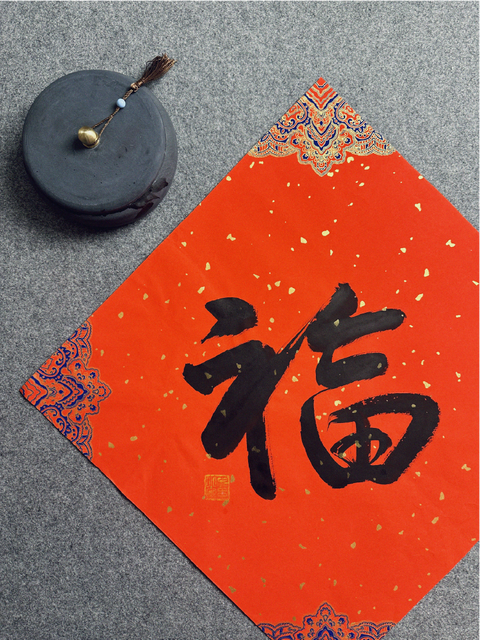
Traditional Tonic Herbs and The Cumulative Power of Daily Tonics
True wellness is more than being free from illness. Rather, it’s a lifestyle that leaves you feeling alive, whole, and in tune with the world around you.
Before we had pills to address every ailment, ancient medical systems such as Traditional Chinese Medicine focused on restorative therapies for thousands of years to promote vitality, resilience, and longevity. Central to these ancient traditions is the concept of tonifying herbs – gentle, nutritive, adaptogenic botanicals that promote well-being and longevity.
Read on to explore the world of tonifying herbs, how they work, and why they are an essential part of any well-being ritual.
A Closer Look at Tonic Herbs
Tonic herbs are a special class of herbs known to nurture and strengthen the body's innate healing abilities.
Unlike medicinal herbs that target specific ailments, tonifying herbs take a holistic approach by fortifying the body from the root. Many tonic herbs are also referred to as "adaptogens," as they adapt their actions to the unique needs of our bodies, and help our bodies adapt to the changing world around us.
These tonics are also believed to help us go beyond “healthy” and achieve higher levels of well-being through increased energy, enhanced strength and endurance, slower aging, and prolonged longevity. Some tonic herbs support overall health, while others have effects on specific body systems like the immune system, detoxification system, cardiovascular system, or brain and nervous system.
Tonic Herbs and Traditional Chinese Medicine
Tonic herbs are an essential aspect of Traditional Chinese Herbalism. According to herbalist Ron Teeguarden, “Among the thousands of herbs used by the Chinese are a select few which are known as the ‘tonics’. These herbs are revered by all those who are aware of them because they enhance the life force and increase longevity. Also called the ‘Superior Herbs,’ the tonics may be taken safely for a long duration if desired to build and maintain health.”
While other herbs may be considered medicinal and “treat” certain symptoms or diseases in Chinese Medicine, tonic herbs are used in a different way. These herbs “fortify the body-mind, to strengthen the life functions, to encourage natural harmony, to enhance one’s adaptability, and as a result of all this to generate what the Chinese call ‘radiant health’,” explains Teeguarden.
The 4 Types of Tonic Herbs in TCM
While TCM acknowledges the adaptogenic nature of tonic herbs, it has its own way of categorizing these therapeutic botanicals:
-
Qi Tonics
Energy tonics, also called Qi tonics, enhance your body's natural energy production and overall vitality. They improve nutrient absorption, support essential bodily functions, and promote the circulation of vital energy (Qi) throughout your body, contributing to good health and longevity.
Typically used for:
- Energy and Vitality
- Stress Support
- Digestive Support
- Fitness and Physical Performance
-
Longevity
-
Blood Tonics
Just as in Western medicine, blood in TCM is known to nourish the tissues of the body and distribute nutrients, hormones, and immune cells throughout. Blood tonics help build healthy blood, improve blood quality, and promote healthy circulation.
Typically used for:
- Energy and Vitality
- Heart Health
- Sleep Support
- Menstrual Wellness and Hormone Balance
- Beauty and Graceful Aging
-
Longevity
-
Yin Tonics
Yin tonics nourish the body's vital fluids which are essential for well-being, resilience, and longevity. In traditional Chinese medicine, Yin also represents stored energy (called “essence”) and is concentrated in certain areas, most notably the Kidneys. The concept of Kidney goes beyond the organ itself to encompass the reproductive system, adrenal glands, ears, hair, skeleton, bone marrow, teeth, brain, and spinal cord. Yin tonics support these organs and functions, providing suppleness, coolness, and flexibility. As such, they also play a crucial role in preserving life and are often revered as anti-aging and longevity herbs in Eastern wellness traditions.
Typically used for:
- Physical Nourishment
- Mental Calmness
- Sleep Support
- Flexibility
- Menopause Support
- Reproductive Health and Fertility
- Beauty and Graceful Aging
-
Longevity
-
Yang Tonics
Yang Tonics are the powerhouses of Chinese herbalism. Like yin tonics, they target the Kidney system, but instead of focusing on nourishing and cooling, they are characterized by their warming and invigorating nature. Yang tonics are believed to enhance metabolism, willpower, courage, and mental creativity. They also provide warming support to the reproductive system and skeletal system, particularly the lower back, knees, and joints.
Typically used for:
- Invigorating
- Energy and Vitality
- Fitness and Physical Performance
- Sexual Drive
- Metabolism and Digestive Support
- Musculoskeletal Health
- Longevity
Slow and Steady: The Cumulative Power of Daily Tonics
Using tonifying herbs is a consistent act of self-care. Rather than address health issues as they appear, tonic herbs provide ongoing maintenance for your body.
Tonic herbs are taken regularly (often daily) to restore and strengthen vitality, even when you are feeling well. Because of their gentle nature, most people can use tonic herbs indefinitely, as a daily well-being ritual and an investment in your future health.
-
Balanced Energy
While some tonic herbs are considered Yin tonics or Yang tonics in TCM, many support both. Either way, tonic formulas combine several different tonic herbs to support the whole body and balance our essential energies.
-
Strengthened Systems
TCM tonic herbs have an affinity for specific organs and systems. For example, herbs like Ginkgo are renowned for their ability to strengthen the Heart, Brain, and overall Qi. Reishi, on the other hand, is known for supporting the Lungs, Liver, Heart and immune system.
-
Ease and Adaptability
Most tonic herbs are also considered adaptogens – substances that support the body in coping with stress and its effects. Researchers agree, with studies showing that tonic herbs protect the nervous system and help us keep a healthy equilibrium and mental harmony through life’s ups and downs.
-
Vitality and Youthfulness
There may be no Fountain of Youth, but tonic herbs are a close second. Many tonic herbs contain powerful active compounds that, when used regularly, may help slow the signs of aging and set a foundation for a long and healthy life.
Discover Yingredient’s Traditional Tonic Herbs
Tonic herbs have long been an essential element of time-honored healing traditions like Chinese medicine. Now, we’re continuing their legacy with a modern approach. Meet the traditional herbs that inspire our tonic formulas:
-
Reishi (Ling Zhi)
Qi Tonic
Reishi is a calming tonic that is most often used to promote a sense of tranquility and support immunity.
-
Cordyceps Sinensis (Dong Chong Xia Cao)
Qi and Yang Tonic
Cordyceps is a stimulating and energizing herbal tonic, most commonly used to enhance physical performance and improve overall vitality.
-
Rehmannia (Sheng Di Huang)
Blood and Yin Tonic
Rehmannia is a rich and deeply nourishing herb that is used to protect cellular health, slow aging, enhance flexibility, and support immunity and longevity.
-
Eclipta (Mo Han Lian)
Blood and Yin Tonic
Eclipta is a cooling and nourishing herb. In TCM, it is used to maintain healthy bones, muscles, hair, and skin, and support healthy detoxification.
-
Polygoni Multiflori (He Shou Wu)
Blood and Yin Tonic
Polygoni Multiflori encourages healthy aging by nourishing Yin and Blood, specifically for the Liver and Kidneys (two key organs involved in the aging process).
-
Eleuthero (Ci Wu Jia)
Qi and Yang Tonic
Eleuthero is a Qi and Yang tonic used to enhance physical and mental performance, invigorate the mind, and promote immunity.
-
Schisandra (Wu Wei Zi)
Yin Tonic
Schisandra is a sour berry that is used in TCM to nourish yin and prevent the loss of fluids. This not only helps slow signs of aging (such as lines and dry skin) but also promotes a sense of calmness and mental stability.
-
Morinda Root (Bai Ji Tian)
Yang Tonic
Morinda root is a powerful yang tonic, particularly suited to support the Kidney system for physical vitality and reproductive health.
-
Poria (Fu Ling)
Qi Tonic
Poria is a type of fungus used in TCM to encourage healthy digestion, improved metabolism, and natural energy. It also supports mental balance by calming the “spirit,” and easing the effects of stress.
-
Licorice (Zhi Gan Cao)
Qi Tonic
Licorice is a sweet and soothing tonic that promotes whole-body harmony. It encourages Qi production, which helps enhance energy, vitality, and longevity.
Experience the Power of Tonic Herbs
Preventative care was the medicine of the past; now, it inspires the medicine of our future. Experience the restorative power of tonic herbs with Daily Reishi Formula. Shop Now.
About the Author:

Kate Downes, L.Ac MSAOM
Kate Downes, a Licensed Acupuncturist and Herbalist with an MSAOM degree, combines her passion for herbal medicine and Chinese medicine into a thriving career. Initially practicing in Indianapolis, IN, she embraced a global journey, transitioning from face-to-face care to sharing her expertise as a remote herbalist and writer. Collaborating with wellness brands and health pioneers, Kate focuses on women’s health, using her platform to promote balance and wellness. Her transition into writing allows her to reach a wider audience, establishing her as a trusted expert in the wellness community.





Comments (0)
There are no comments for this article. Be the first one to leave a message!